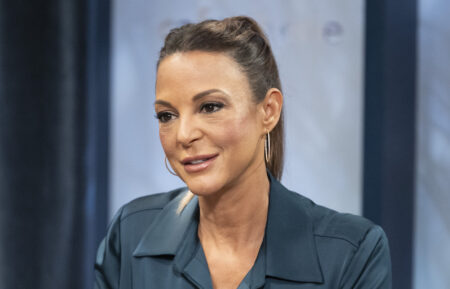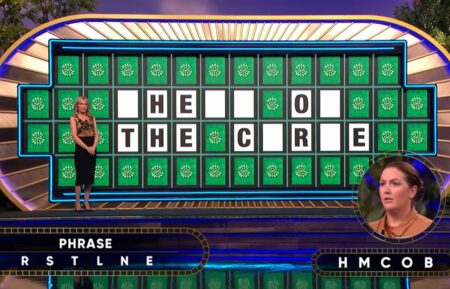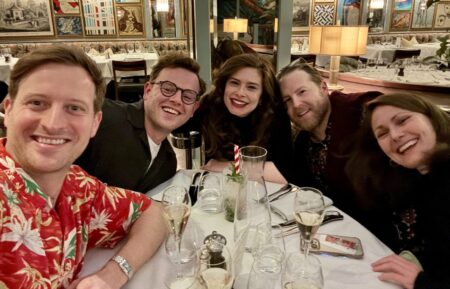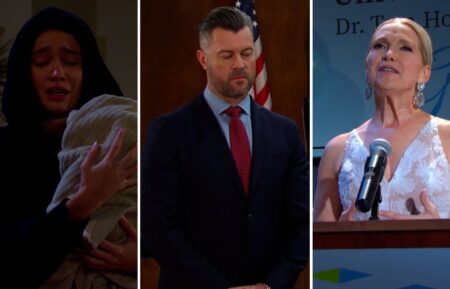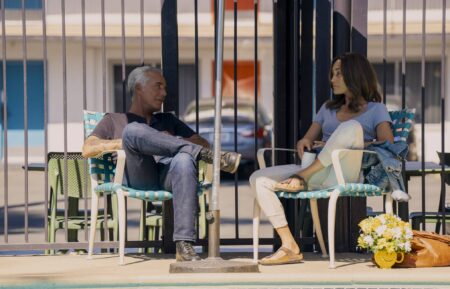What the Season Premiere of ‘Halt and Catch Fire’ Tells Us About How We Communicate in 2017
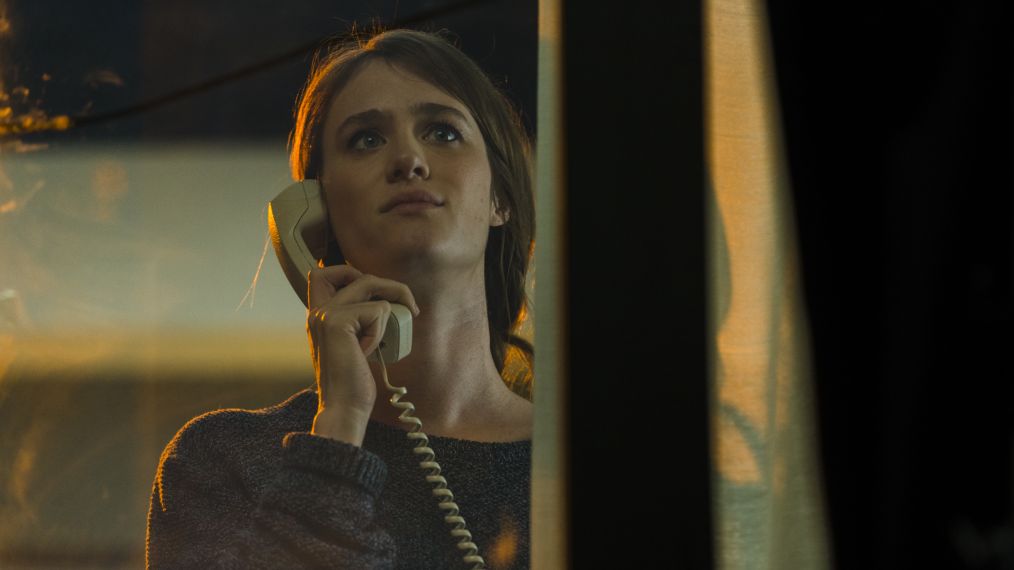
In a recent interview with Halt and Catch Fire creators Christopher C. Rogers and Christopher Cantwell, The Ringer’s Alison Herman described the show as “the story of messy, stubborn, ultimately sympathetic adults stumbling their way toward a changed world.” The show’s fourth and final season brings its characters—problematic tech genius Joe MacMillan (Lee Pace); his business partner Gordon Clark (Scoot McNairy); venture capitalist and Gordon’s now-ex-wife Donna (Kerry Bishé); and perpetually troubled coder Cameron Howe (Mackenzie Davis)—closer than ever to that world. But in the second hour of Saturday night’s season premiere, Halt and Catch Fire gave us a reminder of one of the things that has been lost in the future for which these characters have been laying the groundwork since day one.
After last season’s four-year time jump, the episode opens in the early 90s. It’s the dawn of the digital era and Joe is struggling to come up with his next big idea now that the web browser he and Gordon were developing with Cameron has fizzled thanks to Cameron distancing herself from the project—and from Joe, her former lover.
Cameron returns to Silicon Valley from Tokyo, where she’s been living and working since Mutiny, the gaming start-up she founded with Donna, imploded. Toward the end of the first hour Joe calls her at her hotel, ostensibly to rib her about the new video game she’s created—and to apologize for the fight they had earlier in the episode about Cameron effectively abandoning their shared endeavor.
“I want to know you, in my life,” he tells her.
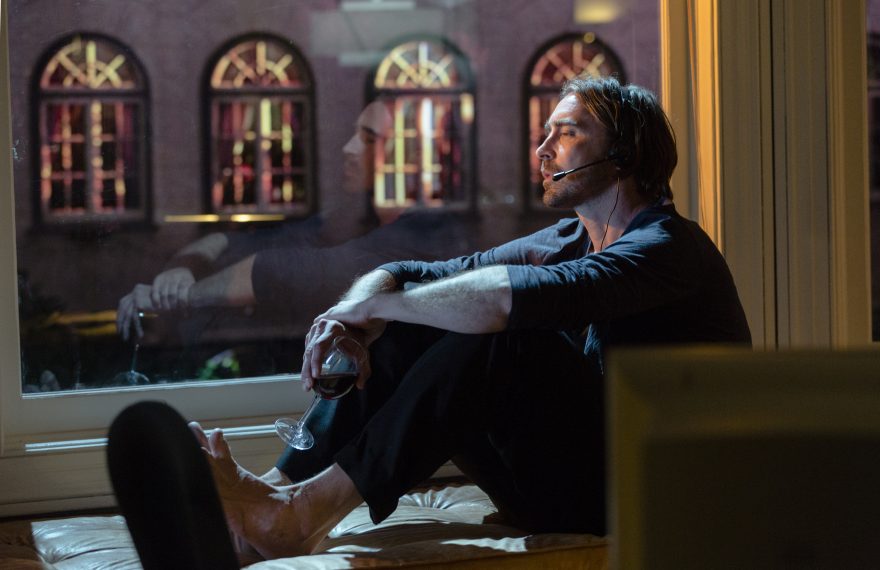
What follows is an intimate, meandering conversation that lasts for almost the entire second hour, and in the process of reconnecting the characters reveals what is missing in the way we communicate now.
At the outset of the episode, both characters are adrift, reeling from professional setbacks and personal disappointment. Joe is frustrated with the direction his and Gordon’s company is taking, and with Cameron. He’s clearly still in love with her, despite recently ending a relationship with his latest boyfriend. Cameron, the videogame wunderkind, is finally encountering resistance from Atari over her esoteric new game. Her husband, sweet, guileless Tom (Mark O’Brien), has also left her for another woman.
Needless to say, both characters are incredibly vulnerable, which is not a position we’re used to seeing them in. Cameron and Joe have always been difficult people. She was the brash, combative, disaffected young woman who listened to aggressive 80s punk while coding in an effort to wall herself off from others. He was, initially at least, the brilliant, distant antihero whose belief in his own genius kept him at best oblivious and at worst indifferent to the way his actions affected those around him. But the free-flowing conversation they have over the phone allows them to reveal themselves more fully to each other and to us than they ever have before.
It’s telling that when they’re in each other’s presence earlier, they’re ready for battle. Joe is hostile, nursing his grudge against Cameron’s role in the collapse of their browser. Cameron, as usual, is defensive. But over the phone, they let their guards down. They ease into talking about nothing in that hazy, semi-distracted way that you only ever do over the phone.
The conversation starts with trivialities, the kind of random observations you only ever make to people when you just want an excuse to keep talking to them: Cameron’s lackluster hotel room shower; both characters’ Hawaiian names; waterparks. Joe doesn’t even hang up when Cameron falls asleep, resuming their dialogue when the sound of his kettle wakes her up.
But all that small talk leads to more profound topics: Cameron’s divorce; her inability to have children; Joe’s feelings about his father. It’s the sort of conversation you could only have over the phone, and it’s a way of communicating that we simply don’t do anymore
Think about every show you’ve seen in the past few years in which things go silent as text bubbles appear next to a character’s face, or the screen shows a close-up of their smartphone. Hell, think about the text threads you have with your own friends. Those “conversations” are for conveying information, but I’m not sure how much we really learn about each other from our iMessages and Facebook chats.
Showrunners are getting better at depicting the way text messages factor into our daily lives, and using that unique way of communicating to tell stories and advance plots. I’m not the first to point out how much those little ellipses bubbles can convey—anticipation, anxiety, indecision—onscreen. But what Halt and Catch Fire has done in “Signal to Noise” is remind us how impersonal those digital exchanges can be, how much is lost when we’re not actually talking to each other.
Halt and Catch Fire has always been a show that’s as much about the people behind the tech as it I about the tech that radically changed the ways we relate to each other. “We’re in the future business here,” Donna says at one point in the episode. But Joe and Cameron’s all-day phone call is almost a love letter to an essentially antiquated way of communicating.
The internet was supposed to connect the world, but increasingly it’s isolating us. It’s no coincidence that the show chose to reconnect its two most disconnected characters via a form of communication they helped to diminish.
Halt and Catch Fire, Saturdays, 9/8c, AMC
From TV Guide Magazine
How 'Countdown' Recruited Jensen Ackles to Go Full 'Die Hard'
Countdown boss Derek Haas talks creating the character around Ackles, and the cast teases the “Avengers”-like team of the crime thriller. Read the story now on TV Insider.





